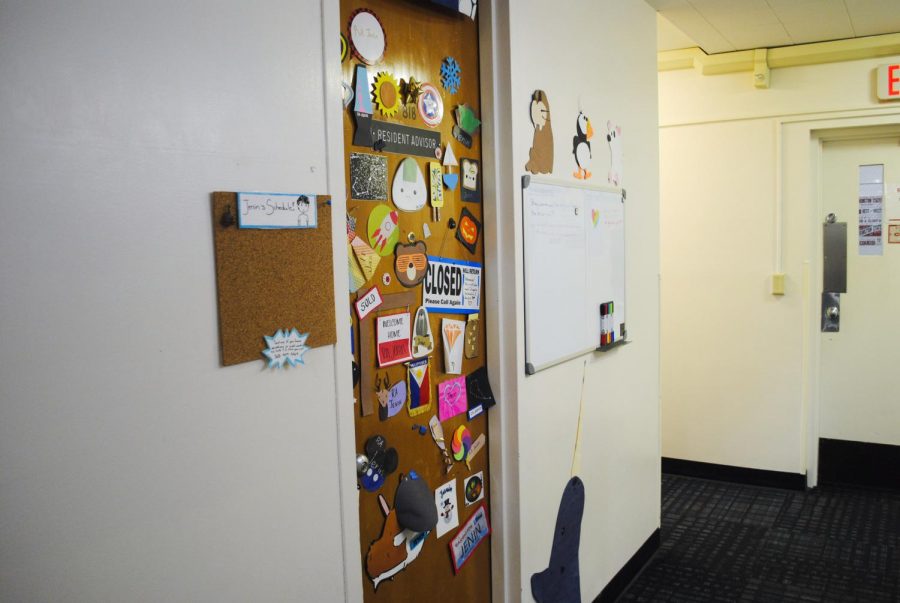Compensate resident advisers for longer hours than required
Dormitories on campus vary in time spent managing residents, staff deserve compensation for overtime
ALYSSA STANFIELD | EVERGREEN PHOTO ILLUSTRATION
RAs can only commit so much time to their residents, but they should be encouraged to spend more of it helping them.
February 28, 2019
Resident Advisers at Washington State University should be compensated for the number of hours they work, not just through housing prices.
RAs are compensated with room and board, but the time they spend working exceeds the value of room and board fees. RAs are expected to work at least 20 hours a week.
The hourly minimum wage in Washington State is $12 per hour, meaning that if an RA earned minimum wage working 20 hours a week, they would make an estimated $9,600 per school year. At WSU room and board costs on average $11,000, according to the WSU Tuition & Fees page.
While this seems like the RA job covers more than what RAs should make if they work 20 hours a week, that’s assuming they work only those 20 hours.
Often, RAs in fact work longer than 20 hours a week, ultimately subjecting them to inadequate compensation. Some of them are expected to work more hours because of the increased volume of residents and incident rates in certain halls. These are the most likely to be under-compensated.
Jonathan Villanueva, a former RA in the Stephenson South and a former Evergreen reporter, knows the hard work it takes to do the job.
“An RA has an exhausting job — they are taking care of multiple people on a singular floor,” Villanueva said. “Some floors and halls have more people and have a higher volume of incidents versus other halls.”
Equal compensation would give incentive to RAs to spend the time they need helping those on their floor. RAs are sometimes the only experienced WSU student a freshman knows when first arriving, so it’s best the RAs make themselves as approachable and available as possible. While some do this with great success already, more would be even more open if they knew they might receive some return on their dedication to the position.
Providing an hourly overtime compensation for RAs would also ensure equity for RAs across all residence halls on campus. An RA working in Stephenson is not compensated at the same estimated cost as an RA who is placed in a lower-volume dormitory like Northside Residence Hall. By creating a system that takes these differences into account, fairer pay can be put in place.
Implementing a system that allows RAs to be monetarily compensated gives fairer pay to all resident hall staff. Some institutions already have a system set in place for this, so there are steps WSU can follow to emulate those systems.
“If you want to give them a paying wage, then [it] has to really change from the top to the bottom,” Villanueva said. “It has to go from an institutional level within residence life and Washington State University, in terms of how they deal with residence halls and housing facilities.”
WSU would need to look toward Housing and Residence Life staff directors to begin proposing and acting on changes within the residence hall system. RAs should be compensated for any hours they work on top of the estimated 20 hours they are expected to, so something to measure and calculate this compensation, along with the differences in residence hall capacity, would need to be established.
This would provide a significant benefit for RAs working in residence halls with a high number of students, with these students working more due to higher incident and interaction rates. Compensating these students fairly for any hours they work overtime gives them pay they deserve beyond room and board.
Changes must begin within the residence hall organization itself so RAs are encouraged to dedicate themselves to putting in the time they need to help those on their floor, rather than just the time required.

















